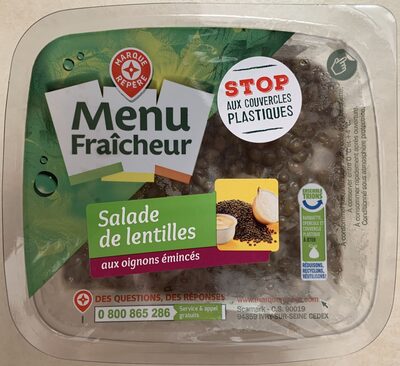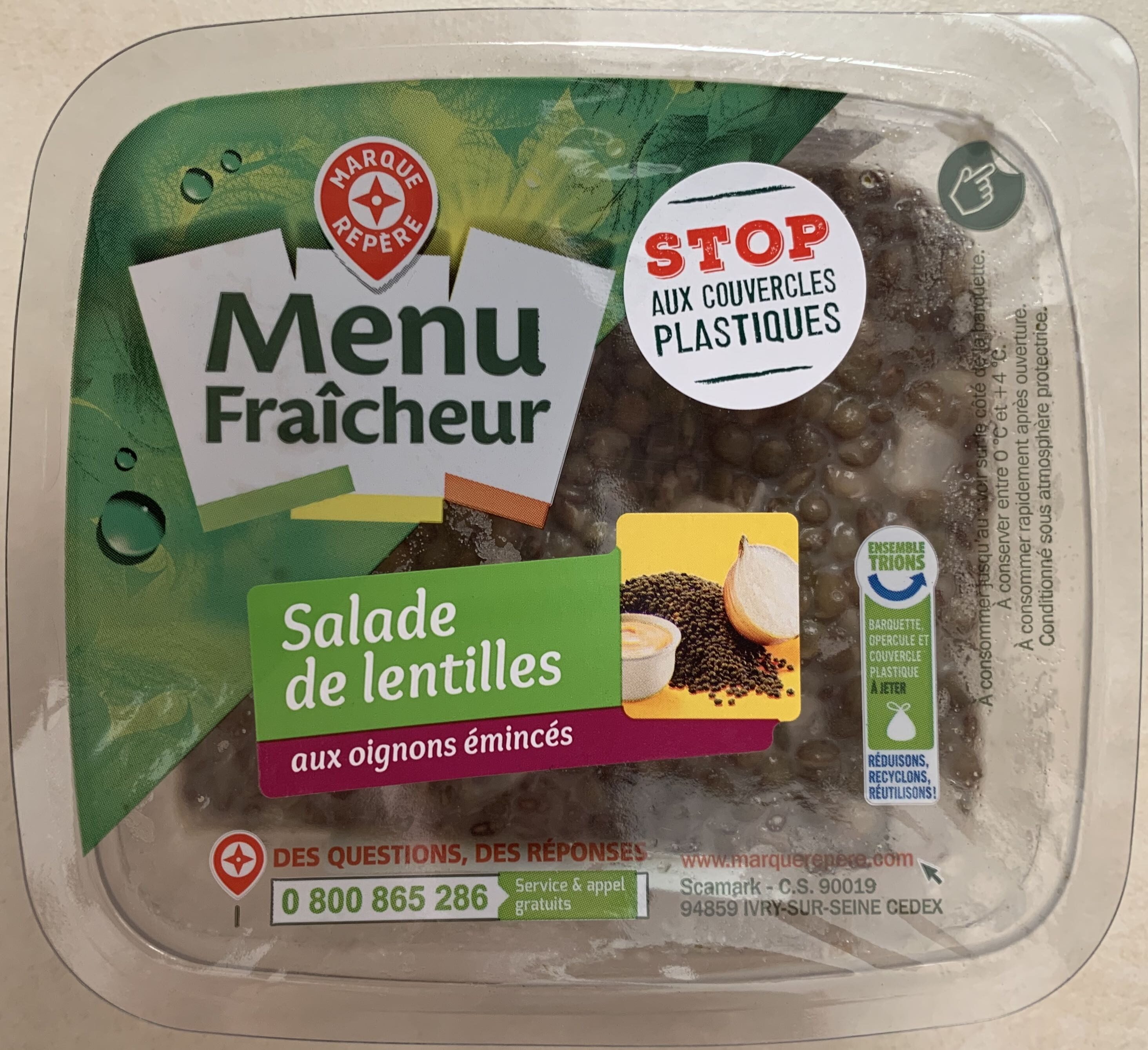Salade de lentilles - Menu Fraîcheur - 300 g
This product page is not complete. You can help to complete it by editing it and adding more data from the photos we have, or by taking more photos using the app for Android or iPhone/iPad. Thank you!
×
Some of the data for this product has been provided directly by the manufacturer Scamark.
Barcode: 3564700698488 (EAN / EAN-13)
Common name: Salade assaisonnée à base de lentilles et d'oignons
Quantity: 300 g
Packaging: Plastic, Fresh, Seal, Tray
Brands: Menu Fraîcheur, Marque Repère
Categories: Meals, Prepared salads, Lentil dishes, Lentil salads
Labels, certifications, awards: Nutriscore, Nutriscore Grade A
Stores: Leclerc
Countries where sold: France
Matching with your preferences
Environment
Packaging
Transportation
Report a problem
Data sources
Product added on by kiliweb
Last edit of product page on by milou262.
Product page also edited by asmoth, beniben, cestki13, ecoscore-impact-estimator, larnicone, moon-rabbit, nexty, openfoodfacts-contributors, org-scamark, packbot, scamark, tacite-mass-editor, teolemon, yuka.Wkl3aVRhSUZpL1FGbVAwNXBSejBvTkJPblkyeEIzbnJHKzRMSWc9PQ, yuka.ZjZVUU81MVFxdElQdDhNMTBEWDc0KzFrL2FLd1FtaStlL2NSSWc9PQ, yuka.sY2b0xO6T85zoF3NwEKvlh0abdfDkwucGQ3Ui2-P1tSOM57zfdJf0Ifebas, yuka.sY2b0xO6T85zoF3NwEKvlhNKDcjQ8zHqajrip1WmloyyFMbwaOxN747XLas, yuka.sY2b0xO6T85zoF3NwEKvlhdWAvDUnjDjORzfmlWh7fyoKIGyQ9Ui0oTHbas, yuka.sY2b0xO6T85zoF3NwEKvlmVBUevGmgrYKDvnmmKN6OaEDKbWZP1x84nmNqg.










